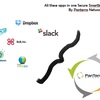I see this often enough: UC firm nabs funding. In this case, Thinking Phone Networks got $10M in funding to bring the total to $31M. Thinking Phones has been around since 2006. Maybe UC just isn't going to work. Maybe the independent UC providers like TPN, Panterra, Simple Signal, Telesphere and others errored.
Most UC providers try to sell nationally, instead of regionally. Regional CLECs do better in my experience than national players (see exhibits: XO, L3, Sprint versus TelePacific, Integra, US Signal). That is far more costly than being regional. Running a nationwide MPLS network is added costs as well.
I compare the UC market to the DSL market in 1999. All the DLECs - Rhythms, Northpoint and Covad - had big IPO's, all went nationwide - and all collapsed.
I had advised most of the cloud comm community to get their sales & marketing machine in gear before Comcast rolled its Broadsoft-based Hosted PBX service out to the channel, which it did last month. To have the might of Comcast chasing after your mid-sized deals will not be fun. Comcast has too many advantages:
- brand name
- Capital
- pricing power
- other services to leverage
- one of the smartest people in HPBX works at Comcast
Verizon hasn't even started its VCE marketing machine yet. (It's been too busy marketing cable services; earning $2.23 billion this quarter, on $30.28 billion in quarterly revenue; and "added 1.1 million net retail wireless connections during the quarter"). What then?
Most businesses don't see or buy the many advantages of UC. Many just want a replacement for their old key system. Period. A good amount of SMBs just want cheap, reliable voice. It is this that the cablecos - Cox, TWC, Comcast, Charter, Bright House - prey on. And then there is the bundle advantage - cheap, fast Internet with TV for your lobby to go with your hosted voice.
I do understand that cloud services is CAPEX intensive for the provider. Yet if you started in 2006, shouldn't you be cash flowing some of that instead of taking seed rounds two years in a row? It's not like TPN has the Broadsoft penalty to pay; they are based off Asterisk.
I think the UC providers that are regional will do far better than the national players. I also think that some of these UC providers need to pivot to verticals. I don't foresee the Duopoly - VZ, C-Link, TDS, WIND, and Cablecos - leaving much room for the national players. For one, the brand leverage is too big. EarthLink is capitalizing on its name recognition in the cloud space. Brands build trust. trust is needed for sales. Most CLECs and VoIP providers never bothered to brand or position their company. Big error.
Back to the question: Will UC work? Maybe on the Fortune 10,000 but I'm not so sure that the rest of the marketplace cares about unified communications. Texts, mobile phones, email, social media are all new avenues of communication that have marginalized the business phone line. Integrating all of those silos of communication - emails, texts, IM/chat, SM, voice, video - into one seamless, easy to use system is a must. How do you do that when you drop ship the phones?
That integration is expensive, time consuming and requires some specialized software programming skills. I'm not saying that the Duopoly will do it, but if the indie UC companies are NOT doing it, they are fighting in the dirt with the Duopoly.
One other analogies: the ISP industry was huge until DSL took a foothold in about 2003. Up till then, EarthLink, AOL, NetZero and hundreds of independent ISP's sold most of the Internet access (in the form of dial-up and DSL). The ILECs loved dial-up since it caused the sale of more POTS lines. BRI (ISDN) didn't take off like the AT&T Lab coats thought, so the ILECs got into dial-up and DSL - undercut everyone with a single bill, telemarketing powerhouse, brand advantage, and lobbying power.
Masergy, which owns UC provider Broadcore, announced that it will be making some acquisitions for growth.
Simple Signal announced that they rolled out gUnify to allow integration with Google Apps.
CoreDial Re-brands Unified Communications Platform as SwitchConnex
Siemens Enterprise Communications changed its name to Unify - to change the way enterprises Collaborate and Communicate. "Project Ansible is a new communications and collaboration platform that leverages secure, dynamic collaboration, universal content aggregation, and a consumer-like, single-pane-of-glass experience that drives adoption and seamless integration into business processes to enhance business performance," according to the pr.
We'll see.













